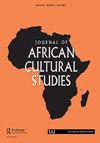非洲空间中关于赝品的对话
IF 0.9
2区 社会学
Q2 CULTURAL STUDIES
引用次数: 4
摘要
本期特刊最初是一个会议小组,与2020年的许多会议小组一样,后来由于Covid-19大流行而被取消。因为一种通过肉眼看不见的微小颗粒传播的新型病毒,全世界每天都有成千上万的人死于这种病毒,整个世界都陷入了停滞,这种想法是不可思议的,令人难以置信的。当我们试图理解这场大流行的时候,全世界都陷入了沮丧和难以置信的境地,因为2020年5月,乔治·弗洛伊德(George Floyd)被拍到在光天化日之下在美国街头被谋杀——对许多人来说,与其说是黑人被执法部门谋杀的事实,不如说他是如何被随意杀害的,这令人难以置信。正是在这种令人难以置信和幻想的事件的背景下,本期特刊的14篇论文汇集成一个合集。随着国际会议取消或转移到网上,办公室和图书馆关闭,我们中的许多人开始在家工作。不仅在物理意义上,而且在处理我们的思想、记忆和对观察到的事物的反思方面,但在我们繁忙的大流行前生活中,这些事物往往没有得到评估。在家工作还意味着照顾他人的责任,管理健康状况不佳,同时由于旅行禁令、红色名单、社交距离和“泡沫”改变了我们与家人、朋友和同事的亲密关系,我们在地理上和身体上都被锁在了外面。在家工作与我们自己、机构和我们能够做的工作类型建立了不同的关系。在这个“新常态”的时代,我们开始更多地依赖在线互动,依赖表情图来幽默,并学会了在虚拟会议上讲话时记住如何解除沉默的重要性。根据商业和沟通分析师的说法,“你开静音了!成为疫情头12个月最常说的一句话(《纽约时报》2021年)。因此,这期特刊为作者提供了一个机会,让他们从不同的学科立场上讨论我们对假与真问题的反思和见解。假的是有争议的,最好理解为一个争论的场所,在这个场所,问题不断被提出,边界不断被突破——在这里,被认为是真实的东西不断被暴露,不被认为是理所当然的,需要全球公开对话,尤其是在非洲的背景下。近年来,特别是在2019冠状病毒病大流行期间,公共和学术领域对非洲空间的假冒行为表达了越来越多的担忧。从药品到食品和出版物,很少有日常生活的领域本文章由计算机程序翻译,如有差异,请以英文原文为准。
Unmuting Conversations on Fakes in African Spaces
This special issue began its life as a conference panel which, like many in 2020, was then cancelled because of the Covid-19 pandemic. The idea that the whole world was grinding to a halt because of a novel virus transmitted through tiny particles, invisible to the naked eye, which was killing people worldwide in their thousands on a daily basis, was fantastical and unbelievable. While we tried to make sense of the pandemic, the world was gripped in dismay and disbelief as in May 2020 George Floyd was filmed being murdered in broad daylight on the streets of The USA – for many it was less the fact that black men are murdered by law enforcement and more witnessing how casually he was killed which was beyond belief. It was against this background of unbelievable and fantastical events that the fourteen papers in this special issue came together as a collection. With international conferences cancelled or shifted online and offices and libraries closed, many of us began working from home. Not only in the physical sense but also in terms of working with our thoughts, memories and reflections on things observed but which were often left unevaluated in our hectic pre-pandemic lives. Working from home also meant caring responsibilities, managing ill-health and being simultaneously both locked-out and locked-in geographically and physically through travel bans, redlists, social distancing and “bubbles” altering our closeness with family members, friends and colleagues. Working from home produced different relationships with ourselves, institutions and the type of work we were able to do. During this time of the “new normal”, we came to rely more on online interactions, on memes for humour and learnt the importance of remembering how to un-mute ourselves when we were talking on virtual meetings. According to business and communication analysts, “You’re on mute!” became the most uttered phrase during the first 12 months of the pandemic (New York TImes 2021). Consequently, this special issue represents an opportunity for the authors included in this collection to unmute, to discuss our reflections and share insights on questions of the fake and authenticity from different disciplinary positions. The fake is controversial and is best understood as a site of contestation in which questions are continuously asked and boundaries pushed – where what is considered real is constantly exposed, not taken for granted and in need of open dialogue globally, but in particular in African contexts. In recent years, and especially during the Covid-19 pandemic, there has been mounting concern expressed in public and scholarly domains about fakes in African spaces. From drugs and medicines, to food and publications, there are few areas of everyday
求助全文
通过发布文献求助,成功后即可免费获取论文全文。
去求助
来源期刊

Journal of African Cultural Studies
Multiple-
CiteScore
1.70
自引率
10.00%
发文量
13
期刊介绍:
The Journal of African Cultural Studies publishes leading scholarship on African culture from inside and outside Africa, with a special commitment to Africa-based authors and to African languages. Our editorial policy encourages an interdisciplinary approach, involving humanities, including environmental humanities. The journal focuses on dimensions of African culture, performance arts, visual arts, music, cinema, the role of the media, the relationship between culture and power, as well as issues within such fields as popular culture in Africa, sociolinguistic topics of cultural interest, and culture and gender. We welcome in particular articles that show evidence of understanding life on the ground, and that demonstrate local knowledge and linguistic competence. We do not publish articles that offer mostly textual analyses of cultural products like novels and films, nor articles that are mostly historical or those based primarily on secondary (such as digital and library) sources. The journal has evolved from the journal African Languages and Cultures, founded in 1988 in the Department of the Languages and Cultures of Africa at the School of Oriental and African Studies, London. From 2019, it is published in association with the International African Institute, London. Journal of African Cultural Studies publishes original research articles. The journal also publishes an occasional Contemporary Conversations section, in which authors respond to current issues. The section has included reviews, interviews and invited response or position papers. We welcome proposals for future Contemporary Conversations themes.
 求助内容:
求助内容: 应助结果提醒方式:
应助结果提醒方式:


